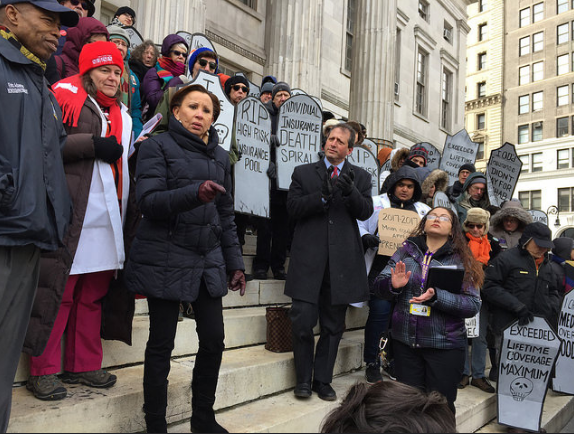By Danika McClure
Women in the United States have a lot at stake when it comes to the future of healthcare — and it’s not just because of maternity and contraceptive care.
Millions of women throughout the U.S. depend on insurance coverage for a number of ailments, such as autoimmune disorders, osteoporosis, breast cancer, anxiety and depression, even seeking relief from menopause. Women are also statistically more likely to be poor and depend on Medicaid and Medicare. In addition, women often shoulder the burden of planning healthcare and coverage for their entire family.
Photo courtesy of Flickr
But as the healthcare debates have persisted in Washington regarding the future of American healthcare, women were rarely a part of the conversation. In an effort to finalize the Senate’s initial version of a bill to replace the Affordable Care Act, Senate Majority Leader Mitch McConnell appointed 12 male colleagues to closed-door sessions. Many GOP representatives expressed openly that they didn’t see issues like childbirth and maternity as a male concern. Some even wondered aloud if men should pay for maternity or prenatal coverage.
Women’s lack of inclusion on the debate floor may have been a large reason why efforts to repeal and replace the ACA failed — after all, two of the three GOP senators that killed the Republican’s repeal efforts were women.
While efforts to repeal the ACA are stalled for now, the future of American healthcare remains highly uncertain — especially for women.
Many of the programs women depend on most are still targets, especially Medicaid, which covers nearly 50 percent of births in the United States. Some programs, such as those that provide federal funding for teen pregnancy prevention and research have already been cut under the current administration.
While not all women agree on what the future of healthcare should look like, especially when it comes to abortion and contraception, it’s clear that Republican policies to cut women’s access to healthcare will require a great deal of opposition.
As the debate continues, women ought be a part of the conversation, especially when you consider that the needs of women change as they age.
See more here
Those entering young adulthood may be particularly concerned about contraceptive care, while those in their 30’s would prefer maternity coverage be made a main priority. Women in their 50s on through their 60s may be concerned about mammograms and Medicare coverage. That kind of thoughtful consideration is not likely to occur without women’s voices on the debate floor and in the drafting room.
In the words of Nancy Pelosi, if women's’ voices aren’t present in this debate, Republican ideas could very well “make being woman a pre-existing condition.”




